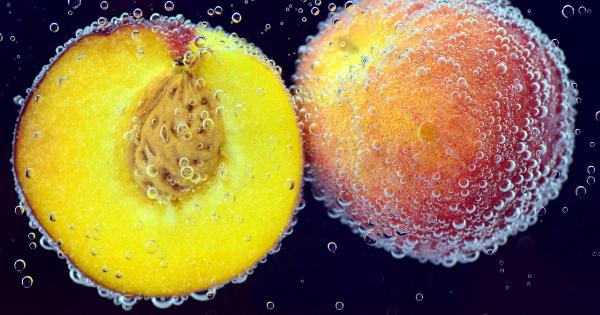Kidney stones are hard deposits of minerals and salts that form in the kidneys and can cause severe pain and discomfort. They are becoming increasingly common, affecting around 10% of people at some point in their lives.
While there are several factors that contribute to the formation of kidney stones, such as genetics and certain medical conditions, adopting healthy eating habits can play a crucial role in their prevention. In this article, we will explore some dietary recommendations and strategies to help individuals maintain optimal kidney health and reduce the risk of kidney stone formation.
1. Stay Hydrated
One of the most important steps in preventing kidney stones is to stay adequately hydrated. Drinking enough water helps maintain urine volume, which prevents the concentration of minerals and salts that can lead to stone formation.
The recommended daily water intake varies depending on factors such as age, sex, and climate. However, a general guideline is to drink at least 8 cups (64 ounces) of water per day.
2. Increase Citrus Fruit Consumption
Citrus fruits, such as lemons, oranges, and grapefruits, are rich in citrate, which is a natural inhibitor of kidney stone formation. Citrate binds to calcium and prevents the formation of crystals that can develop into stones.
Incorporating these fruits into your diet or consuming their juices can help raise citrate levels in the urine and reduce the risk of kidney stone recurrence.
3. Opt for Low Oxalate Foods
Oxalate is a compound found in many foods and can contribute to the formation of kidney stones in some individuals. To lower your oxalate intake, limit the consumption of high-oxalate foods like spinach, rhubarb, beets, nuts, and chocolate.
Instead, opt for low-oxalate alternatives such as kale, broccoli, cauliflower, and green peppers.
4. Choose a Balanced Diet
Eating a balanced diet is key to overall health and can also contribute to kidney stone prevention. Include a variety of fruits, vegetables, whole grains, lean proteins, and healthy fats in your meals.
This helps ensure an adequate intake of essential nutrients while reducing the risk of excessive intake of substances that can contribute to stone formation.
5. Limit Sodium Intake
A high-sodium diet can increase the amount of calcium in the urine, leading to the formation of calcium-based kidney stones. To reduce sodium intake, minimize the consumption of processed foods like canned soups, snacks, and fast food.
Instead, flavor your meals with herbs, spices, and other low-sodium seasonings.
6. Moderate Protein Consumption
Diets high in animal protein, such as red meat, poultry, and seafood, can increase the excretion of calcium and uric acid, both of which are risk factors for kidney stones.
Opt for moderate protein intake and consider incorporating plant-based protein sources like beans, lentils, and tofu into your meals.
7. Increase Calcium from Food Sources
Contrary to popular belief, consuming calcium-rich foods actually helps reduce the risk of calcium-based kidney stones.
Calcium from food sources binds to oxalate in the digestive system, preventing it from being absorbed into the bloodstream and ultimately excreted through the kidneys. Good sources of dietary calcium include dairy products, leafy greens, and calcium-fortified alternatives.
8. Avoid High Sugar and High-Fructose Corn Syrup
Diets high in sugar and high-fructose corn syrup have been associated with an increased risk of kidney stone formation.
These sweeteners can increase the excretion of calcium and other substances in the urine, increasing the likelihood of stone formation. Limit your intake of sugary beverages, candies, baked goods, and other foods with added sugars.
9. Moderate Caffeine and Alcohol Consumption
Both caffeine and alcohol can increase urine production and dehydration, which can contribute to stone formation.
While moderate intake of these substances is generally considered safe, excessive consumption should be avoided, especially for individuals with a history of kidney stones. Opt for healthier alternatives like herbal teas and non-alcoholic mocktails.
10. Be Mindful of Vitamin and Mineral Supplements
While certain vitamin and mineral supplements can be beneficial for overall health, some may contribute to the formation of kidney stones if taken in excessive amounts.
Avoid mega-doses of supplements without proper medical guidance, especially those containing calcium, vitamin C, and vitamin D.
Conclusion
Adopting healthy eating habits is crucial for kidney stone prevention.
By staying hydrated, increasing citrus fruit consumption, choosing a balanced diet, limiting sodium and animal protein intake, and being mindful of supplements and sugary foods, individuals can significantly reduce their risk of kidney stone formation. As always, it is essential to consult with a healthcare professional or a registered dietitian to tailor these recommendations to your unique needs and medical history.






























